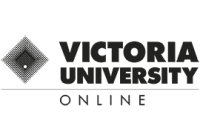One of the degrees that are in most demand all over the world is a Master of Business Administration. Earning a degree at a more advanced level can help you climb higher up the corporate ladder and enhance your prospective earnings. Yet not all master's in business administration degrees are the same. You have the option of choosing from a variety of various specialisations for your MBA, each of which presents its own individual set of advantages and difficulties. In this piece, we will look at the top 10 MBA specialities that you should consider pursuing in the future.
During the first year of the Master of Business Administration (MBA) program, students receive an overview of each topic connected to management and business. In the latter part of the same year, kids are introduced to various specialist fields. They are responsible for selecting the industry they wish to specialise in and where they are most interested. The MBA concentration offers in-depth education and training in a particular study area. Employers benefit when they know a graduate's potential to succeed in a specific field of business.
Quick Links To Online MBA Degree Programs
VICTORIA UNIVERSITY
MASTER OF BUSINESS ADMINISTRATION (ONLINE)
- 2 years part-time (minimum)
- 12 units (7 weeks)
- $3,650 per unit, FEE-HELP available
EDITH COWAN UNIVERSITY
MASTER OF BUSINESS ADMINISTRATION (MBA) ONLINE
- 24 months / 18 months (Fast-Track) minimum
- 12 units / 9 units (Fast-Track)
- $54,000 / $40,500 (Fast-Track); FEE-HELP available
University of Technology Sydney
MASTER OF BUSINESS ADMINISTRATION (ONLINE)
- 2 years (minimum), part-time
- 12 subjects | 7-week study blocks
- $4,250 per subject**, FEE-HELP available
JAMES COOK UNIVERSITY
MASTER OF BUSINESS ADMINISTRATION GLOBAL (MBA ONLINE)
- 24 months, Part-time
- 12 Subjects (One subject per each 7-week study period)
- $3,700 per subject, FEE-HELP is available
Most In-Demand MBA Specialisations
Finance
Students interested in working in investment banking, asset management, or corporate finance often choose to earn an MBA with a concentration in finance as their degree of choice. Students who choose to specialise in this area will learn about topics such as financial analysis, budgeting, and risk management. In addition, those who complete this degree can look forward to excellent pay and employment opportunities in many fields.
Marketing

Students considering pursuing professions in advertising, brand management, or market research would benefit tremendously from earning an MBA in marketing. Students that want to specialise in this area learn about different aspects of marketing, including customer behaviour, market analysis, and advertising strategy. In addition, students who complete this degree anticipate finding employment with major corporations or beginning their own successful ventures.
Entrepreneurship
Those who aspire to launch their own companies would benefit greatly from pursuing an MBA with a concentration in entrepreneurship. Those that want to focus on this area will learn about strategic business planning, financial management, and marketing. Students who complete this program might plan on either beginning their firms or finding employment in new ventures.
Human Resources
Students considering pursuing professions in talent acquisition, training, or organisational development would benefit tremendously from earning an MBA in human resources. Students specialising in this area learn employee relations, performance management, and labour laws. Those who complete this course can anticipate finding employment in various businesses and organisations.
Operations Management
Students who are interested in professions in logistics, supply chain management, and process optimisation would benefit tremendously from earning an MBA with a concentration in operations management. Students specialising in this area will learn about lean manufacturing, inventory management, and supply chain strategy. Those who complete this course can anticipate finding employment in various businesses and organisations.
Information Technology
Students who are interested in technology management, data analysis, or cybersecurity professions would benefit tremendously from earning an MBA in information technology. Database administration, network security, and project management are some of the topics that students will learn about during this specialisation. Those who complete this course can anticipate finding employment in various businesses and organisations.
International Business
Students interested in professions in international finance, international trade, or multinational organisations would benefit tremendously from earning an MBA with a concentration in international business. Those specialising in this area will learn about international marketing, finance, and cultural differences. Those who complete this course can anticipate finding employment in various businesses and organisations.
Healthcare Management
Students considering professions in healthcare administration, hospital management, or healthcare consultancy would benefit tremendously from earning an MBA with a concentration in healthcare management. Students who want to concentrate on this area will gain knowledge in healthcare policy, healthcare finance, and healthcare marketing. Students who complete this program can anticipate employment opportunities in various healthcare settings.
Sustainability
Students interested in sustainability consulting, environmental management, or renewable energy professions can consider pursuing a master's degree in business administration with a concentration in sustainability. Those concentrating in this area will learn about environmentally responsible business practices, environmental law, and renewable energy technology. Those who complete this course can anticipate finding employment in various businesses and organisations.
Public Administration
Students interested in working in public policy, government, or nonprofit organisations would benefit tremendously from earning an MBA with a concentration in public administration. Students specialising in this area learn about public administration, public policy, and public finance. Students who complete this degree can anticipate employment in various public sector firms.
What Are the Highest-Paying MBA Specialisations?
Finance, healthcare, and technology are three businesses that offer the highest salaries to workers with an MBA. For example, a survey of corporate recruiters conducted in 2019 revealed that the finance business gives a base median beginning salary of $125,000, significantly more than the median starting income for MBA graduates, which is approximately $115,000. On the other hand, graduates who get employment in the consulting industry report the highest starting median wage, which is $135,000.
Although the earning potential for MBA graduates in some industries is reduced, their incomes are still better than those of students with bachelor's degrees. For example, in manufacturing and products/services, the median annual compensation for recruits is $105,000. Still, the median annual wage is $65,000 in nonprofit organisations and governments. Those with bachelor's degrees typically begin their careers with wages of $55,000.
Remember that earnings might vary greatly depending on the sector you work in, the job title you hold, the workplace location, and the business school you attended.
Why study RMIT Online's Master of Business Administration?
Tailor your MBA degree through minors
Choose electives from four minor areas that align with industry demand. Unlike more traditional MBAs in Australia, you can tailor your degree to an area you’re passionate about and grow your leadership capabilities.
Gain knowledge, build networks
Our highly social online learning platform gives you access to current, industry-informed content and connects you with academics and students across time zones. Build strong business relationships that know no limits.
Enrolment intakes every two months
Study in any one of our six teaching periods each year. You'll only study one course at a time across each seven-week study period, meaning your learning will be consolidated, focused and fast-paced.
Top 10 MBA Specialisations for 2023
MBA in Finance
Even though numerical analysis is at the heart of finance, the term "finance" is frequently used to refer to the subject of numbers. However, it encompasses a wide variety of other types of verticals. Aspiring business leaders choose finance as their area of concentration for an MBA for various reasons, including that it is one of the most fundamental aspects of successfully operating a business.
The primary goals of an MBA in Finance are to convey information regarding investment management and control, to provide insight into financial resources, and to handle costs within the context of business.
Who Should Opt for an MBA in Finance Program?
To handle various tasks, ranging from managing a business's financial records to supervising firm acquisitions, an MBA in finance graduate must be proficient in dealing with a company's portfolio management and risk assessment. This is an absolute requirement.
MBA in Marketing
When it comes to a company, marketing is an essential component that must be there for it to develop into a successful corporation. At first glance, the area of expertise and the career path may appear to be an exciting choice, yet, it is also a very dynamic and competitive industry to consider. An individual with an MBA in marketing has received the training to develop strategies for marketing a company's products and services. The subject of how to market a product is only one of the many topics covered in this specialisation's alphabetical overview. It begins with researching the target demographic, becoming familiar with emerging marketing trends that could benefit your company, formulating a strategy based on your unique selling proposition (USP), analysing the businesses in direct competition with you, and so on.
Who should Opt for an MBA in Marketing program?
Students interested in pursuing a career in marketing should note that it is essential to have strong communication skills, a personality that is easy to persuade others, and the ability to mobilise resources effectively. You can advance your career in a range of industries with the help of an MBA in Marketing, including fast-moving consumer goods (FMCG), market research, advertising, technology retail, financial services, and hospitality.
MBA in Digital Marketing

As digital media continues to develop and become more widespread, more traditional marketing strategies are going online or onto digital platforms. In addition, as a result of the impact of the pandemic, business owners of all sizes have been compelled to transfer their operations online, creating a significant need for experts skilled in digital marketing. However, you are mistaken if you believe it will come to a halt sometime in the future.
The curriculum of an MBA in digital marketing covers a wider range of topics than simply how to sell a business. It offers more in-depth coverage of other key aspects of digital marketing, such as content marketing, inbound marketing, outbound marketing, email marketing, and social media marketing. In addition, you will receive training in various marketing and sales skills, which will prepare you to thrive in businesses catering to consumers and businesses.
Who Should Opt for an MBA in Digital Marketing Program?
Those individuals with a significant interest in marketing are the best candidates for the digital marketing specialisation, which is available to candidates. Other than having hobbies and ideas on social media platforms, other abilities are necessary, such as communication, content creation, the ability to plan, and methods each plan to succeed, etc.
MBA in Information Technology
There is now a close connection between business and information technology as a direct result of the rise of the digital revolution. In some fashion or another, the requirement for innovations has contributed to the emergence of new positions and boosted employment chances for many people.
The MBA-IT program is a master's degree primarily focused on incorporating and applying information technology in business settings. To put it in more layman's words, the information you can gather with technology can assist a company in developing its business on multiple levels. In addition, the information gleaned from these sources, in the form of demographics and analytics, is extremely effective and trustworthy.
The fact that this program instructs students in topics like business planning and management, along with topics pertinent to information technology, is an important facet of the education they receive from it. Because the program focuses on applying information technology in business, the primary objective is to train and educate students in database management, networking systems, and other computer skills.
Who Should Opt for an MBA Information Technology Program?
Applicants interested in acquiring knowledge and are drawn to learning about advanced technology and the business elements of technology are encouraged to consider enrolling in the course.
MBA in Human Resources
Working in human resources is one of the most physically demanding jobs in the world. Any firm's human resources department must collaborate with employees and management while maintaining its role as an impartial component of the organisation. An HR professional is required to collaborate with applicants throughout the recruitment and employment of a competent workforce.
After that, they still need to work on employee training and development, job analysis, performance evaluation, and appraisals. However, that is not the end of the process. Those working in HR are accountable for the most important decisions in the organisation and are tasked with various other responsibilities.
Who Should Opt for an MBA Human Resources Program?
Students who are outstanding communicators, have strong interpersonal skills and can foresee the expansion of an organisation would do well to consider pursuing a master's degree in business administration with a concentration in human resources.
MBA in Business Analytics
A master's degree in business administration with a concentration in analytics has become increasingly valuable and necessary due to the growing demand for professionals who can work with large amounts of data. The focus of a Master of Business Administration in Business Analytics is on how data-driven recommendations and solutions can help bridge the gap between business and information technology.
Who Should Opt for an MBA Business Analytics Program?
A solid understanding of business and a solid foundation in computer science, data, and statistics are typically required for admission to MBA programs that focus on business analytics. Consequently, it is strongly suggested that students with strong analytical skills, a good understanding of the implementation of statistical techniques and information system software, and a passionate interest in actively developing their management knowledge creatively.
MBA in Data Analytics
In an ideal world, organisations have been using fundamental data analytics for several decades to get insights and anticipate emerging trends. In the beginning, it was mostly determined by the statistics that were displayed on a spreadsheet. These data had to be manually examined by an analyst, which was a procedure that was both demanding and monotonous. Yet, the big data analytics phenomenon reached the scene several decades later. As a result of the development of new technology, businesses can now efficiently gather data and investigate, evaluate, and forecast new opportunities, constraints, and areas of opportunity for improvement.
Data analytics is the best method, with the assistance of data and technology, to identify answers to problems that may develop in a company and to predict the results of those problems. For instance, applying machine learning algorithms to different data types (text, photos, video, and audio) and then visually representing the many conclusions you could draw from those techniques.
It must seem exciting but also perplexing.
Who Should Opt for an MBA Data Analytics Program?
The following are reasons why those interested in how data might influence the future should strongly consider pursuing an MBA in Data Analytics. A broad education in data infrastructure, decision-making, machine learning, and testing are some topics covered in the data analytics specialisation.
MBA in Risk Management
Because of cybercrime, unstable markets, liability difficulties, and so on, every organisation will eventually face organisational risk. If your company is intertwined with a data-driven environment, in which your entire existence is online and a single malicious tap can bring it to an end, the likelihood of this happening is significant. As a result, we strongly demand the services of risk management professionals to handle a situation like this.
Who Should Opt for an MBA Risk Management Program?
Those particularly gifted in observation, problem-solving, and strategic planning are encouraged to enrol in this course. Graduates with an MBA in Risk Management have a far better chance of succeeding in the management industry. Students that choose to specialise in this area may find that it is much simpler to identify potential threats to an organisation's operations and value propositions and generate various solutions for mitigating those threats.
MBA in Operations
The operations department of a company is a company's most important asset. Consequently, earning an MBA with a concentration in Operations is highly recommended for anyone aspiring to manage a growing firm efficiently and effectively. A grasp of the many methods you may use to manage and organise a firm to assist it in realising its full potential is a fundamental component of the knowledge required for an MBA in Operations. Candidates typically receive instruction in various topics before being considered, including business forecasting, project administration, managerial economics, operational and supply chain management, and more.
Who Should Opt for an MBA Operations Program?
A candidate who is strong in both analytical and organisational abilities would be a suitable fit for this speciality. In addition, these specialists are essential and in high demand since they contribute to delivering high-quality goods and services on time and according to the schedule, all without diminishing the product's value.
MBA in Healthcare Management
Obtaining a master's degree in business administration with a concentration in healthcare management is the key to unlocking administrative responsibilities in medical and healthcare management. Developing your abilities and expanding your understanding of the sector can pave the path to landing lucrative work roles. As a result of the recent occurrence, the training program has seen an increase in enrollment, and the demand for qualified healthcare management professionals continues to grow.
Concerns about hospital administration, pharmaceutical management, preventative medical care, and therapy receive the bulk of attention during my study for an MBA in Healthcare Management. Their primary focus is on meeting the administrative requirements of the healthcare business and health insurance companies.
Who Should Opt for an MBA Healthcare Management Program?
Those born to lead, are naturally organised and can think strategically are prime prospects for the post. The curriculum is only concerned with healthcare, but it also covers topics such as accounting, law, leadership, marketing, business ethics, and budgeting through the lens of healthcare.
Conclusion
In conclusion, choosing a specialisation for an MBA might be a challenging option. Yet, if you take into account your hobbies and the things you want to accomplish in your profession, you will be able to select the area of specialty that is ideal for you. Every one of the top ten MBA concentrations.
Content Summary
- Master of Business Administration (MBA) degrees are in high demand worldwide.
- MBA specializations offer unique advantages and challenges.
- The top 10 MBA specializations to consider are finance, marketing, entrepreneurship, human resources, operations management, information technology, international business, healthcare management, sustainability, and public administration.
- MBA specialisations provide in-depth education and training in specific areas of study.
- Finance specialization offers opportunities in investment banking, asset management, and corporate finance.
- Marketing specialization is beneficial for careers in advertising, brand management, and market research.
- Entrepreneurship specialization prepares individuals to start their own businesses or work in new ventures.
- Human resources specialization is suitable for talent acquisition, training, and organizational development careers.
- Operations management specialization is ideal for logistics, supply chain management, and process optimization professions.
- Information technology specialization focuses on technology management, data analysis, and cybersecurity careers.
- International business specialization is valuable for professions in international finance, trade, and multinational organizations.
- Healthcare management specialization is beneficial for careers in healthcare administration, hospital management, and consultancy.
- Sustainability specialization is suitable for sustainability consulting, environmental management, and renewable energy professions.
- Public administration specialization is ideal for working in public policy, government, and nonprofit organizations.
- Finance, healthcare, and technology are the highest-paying MBA specializations.
- MBA graduates earn higher salaries compared to bachelor's degree holders.
- Salary potential varies based on industry, job title, location, and business school attended.
- RMIT Online's Master of Business Administration allows students to tailor their degree through minors.
- The program offers access to industry-informed content and networking opportunities.
- Enrolment intakes are available every two months for flexible study options.
- MBA in Finance focuses on investment management, financial resources, and cost control.
- MBA in Marketing covers various aspects of marketing, including target demographics and competition analysis.
- MBA in Digital Marketing prepares individuals for marketing strategies on digital platforms.
- MBA in Information Technology integrates technology into business settings and emphasizes database management and networking systems.
- MBA in Human Resources trains students in recruitment, training, and development of a competent workforce.
- MBA in Business Analytics focuses on data-driven recommendations and bridging the gap between business and technology.
- MBA in Data Analytics provides insights and predictions using data and technology.
- MBA in Risk Management prepares professionals to handle organizational risks, such as cybercrime and liability issues.
- MBA in Operations equips students with skills in managing and organizing a company efficiently.
- MBA in Healthcare Management unlocks administrative responsibilities in medical and healthcare management.
Frequently Asked Questions
An MBA, or Master of Business Administration, is a graduate degree that focuses on the principles and practices of business management. It equips students with a comprehensive understanding of various business functions such as finance, marketing, operations, and strategy. An MBA program typically includes a mix of core courses, electives, and practical experiences to develop well-rounded business professionals.
There are several reasons why individuals choose to pursue an MBA. Firstly, an MBA provides a solid foundation of business knowledge and skills that can enhance career prospects and open doors to higher-level positions. It can also facilitate career transitions by providing expertise in a specific industry or functional area. Additionally, an MBA often offers networking opportunities, access to a diverse alumni network, and valuable connections with industry professionals.
Admission requirements for MBA programs can vary depending on the institution. However, common prerequisites include a bachelor's degree from an accredited institution, satisfactory GMAT or GRE scores, a competitive GPA, letters of recommendation, a statement of purpose, and professional work experience. Some programs may also require interviews or essays as part of the application process.
While many MBA programs prefer applicants with some professional work experience, there are also options available for individuals without prior business experience. Some MBA programs offer specialized tracks or concentrations designed for candidates from non-business backgrounds. These programs often provide additional foundational coursework to ensure students have a solid understanding of core business concepts before diving into advanced topics.
An MBA can open doors to various career opportunities across industries and sectors. Graduates often pursue roles in management consulting, finance, marketing, operations, entrepreneurship, and leadership positions in both corporate and nonprofit organizations. The specific career path can depend on the individual's interests, specialization within the MBA program, and prior work experience. An MBA can also provide the skills and knowledge necessary for individuals to start their own businesses or venture into the world of entrepreneurship.





